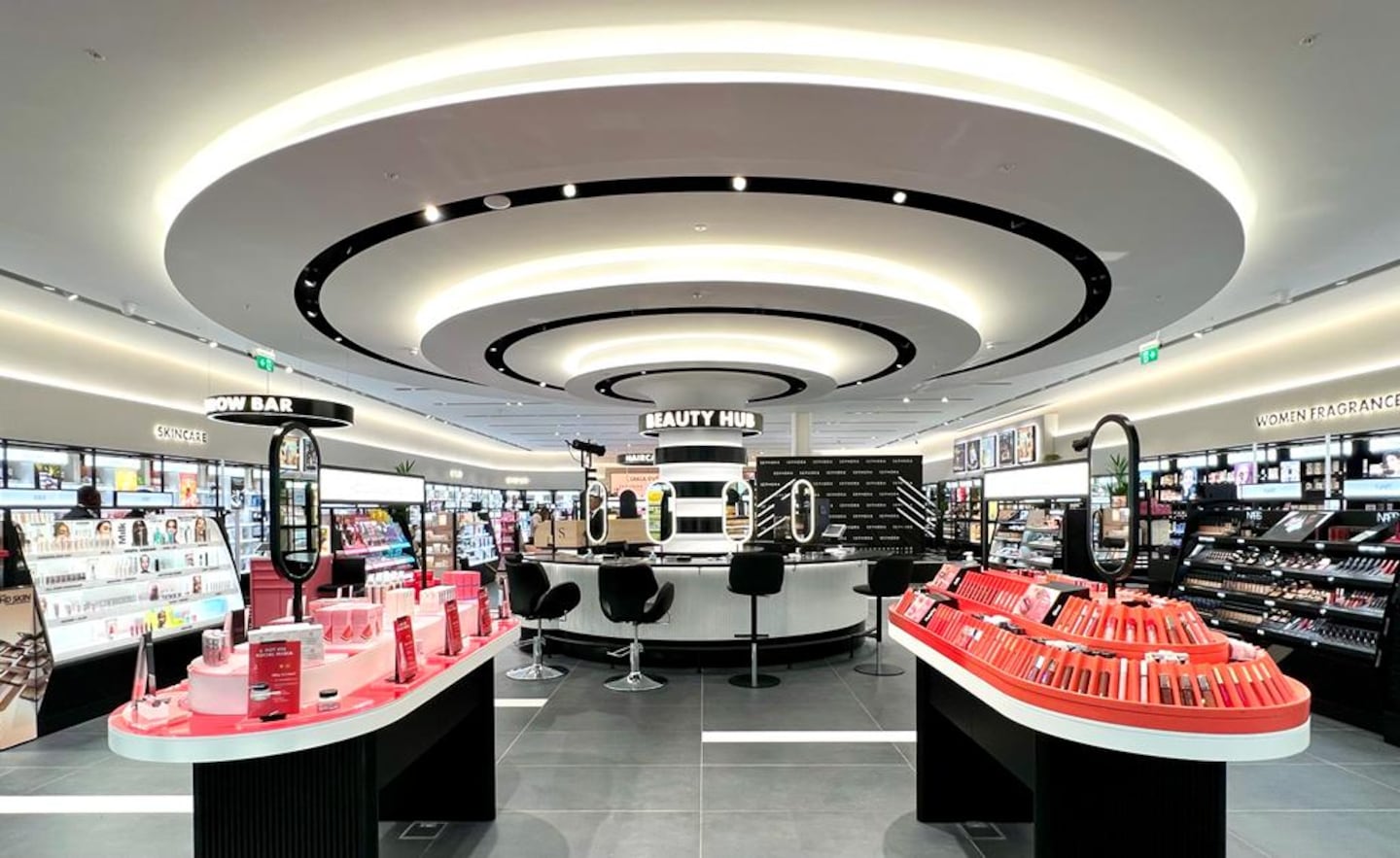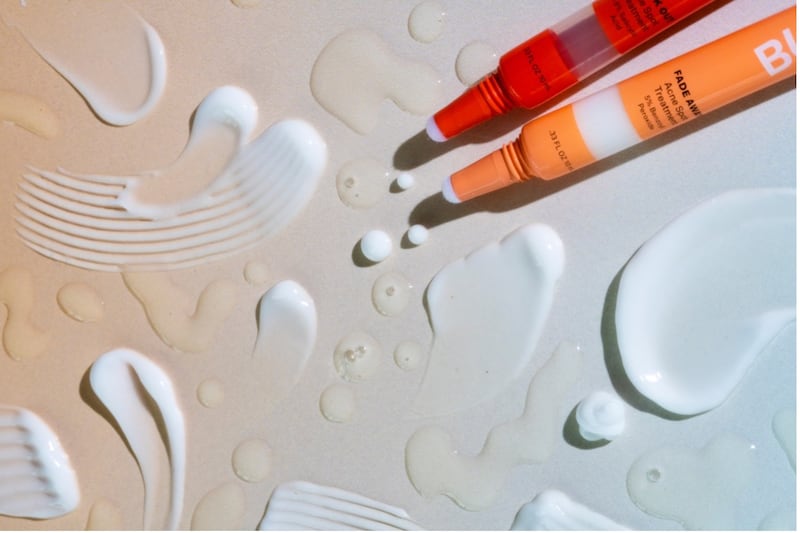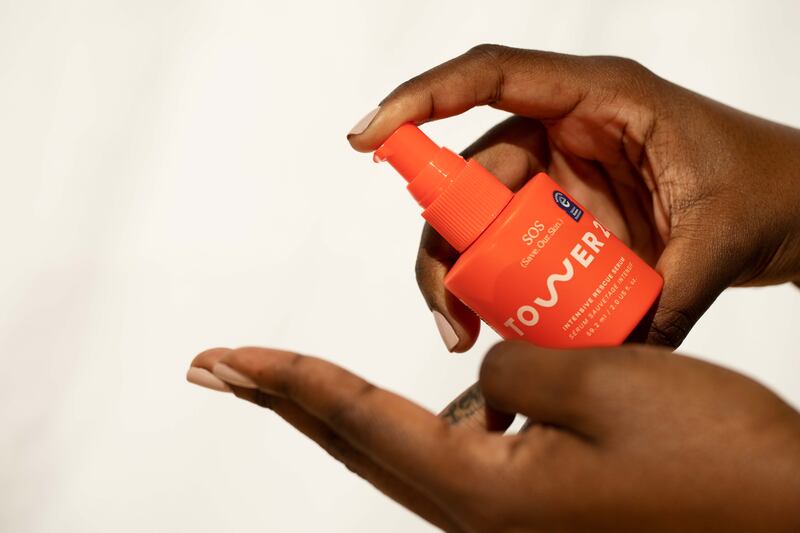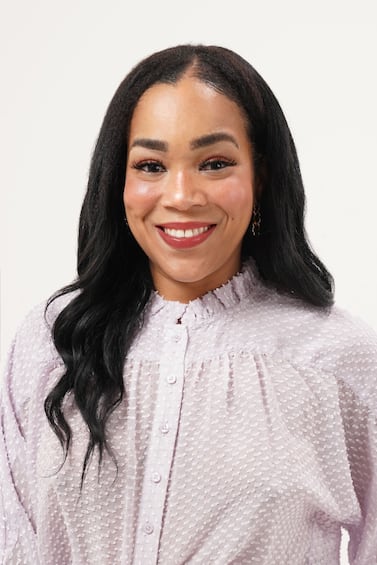
The Business of Fashion
Agenda-setting intelligence, analysis and advice for the global fashion community.

Agenda-setting intelligence, analysis and advice for the global fashion community.

For the first time since she launched her Gen-Z focused skincare label Bubble in 2020, founder and chief executive Shai Eisenman is looking for a very different kind of brand ambassador: A salesperson who can sell to other salespeople.
“The way consumers get excited about trying a brand nowadays is by getting an expert opinion,” Eisenman said. “Experts are dermatologists and estheticians, but also associates in speciality stores.”
That the fast-growing beauty brand’s biggest hiring need is focused squarely on brick-and-mortar is a sign of the times.
As emerging brands like Bubble look to scale up, they’ll continue to need digital-savvy social media content creators who can work their magic on Gen Z-obsessed platforms like TikTok. But brands are on the hunt to fill their retail talent pipeline — seeking out more traditional ambassadors like heads of store sales and field associates, who trek from one brick-and-mortar retailer to another to train store staff and promote a company’s wares to employees (and, occasionally, customers).
ADVERTISEMENT
When trained by an experienced field associate, a store salesperson becomes a whiz about everything from a product’s key ingredients to how it’s used — and ideally has a predisposition to recommending it to shoppers.
The field associate role — which has existed in the sales industry in every sector from pharmaceuticals to kitchenware for decades — gets after several critical objectives for indie beauty brands right now. Lines like Bubble are on a mission to grow their brick-and-mortar reach and build consumer trust at a time when influencer fatigue, market saturation and brand-agnostic store associates (who may or may not know anything about many of the brands their stores carry) are creating new challenges that can impede their longevity. (Bubble landed distribution in Walmart in 2021; it launched in CVS and Ulta Beauty last year.)

“If you look at job sites, you can see that this is where all the hirings are — literally thousands postings are in retail stores,” said Damian Chiam, partner at executive search firm Burō Talent, which helps companies like LVMH and Chanel fill their ranks. “These startup brands are all realising they can’t be DTC forever and they’re all moving into retail.”
Field associates — which may use other titles like regional sales representatives, brand ambassadors or education specialists — analyse and drive sales of a brand’s products at various retailers usually within a specific region like the Northeast or Midwest. Via weekly (or monthly) visits to retailers, these ambassadors educate the stores’ staff on the specifics of the brand’s products and the preferred selling techniques.
Over the past decade, the role became less popular as more companies shifted their priorities to digital innovation, said Liza Amlani, principal and co-founder at Retail Strategy Group, a business consultancy.
For the past several years, some beauty retailers equipped their store associates with tablets and iPads to search up information and respond to customer queries on the fly. Meanwhile, brands doled out hundreds of thousands of dollars to social media influencers with massive followings — who may or may not actually use the product or have any training in a specific category — to tout their latest moisturiser or eye shadow palette.
The result, Amlani said, was that “product knowledge training became a lost art,” and field associates fell by the wayside. The trend was further exacerbated by the pandemic, which fueled online shopping and temporarily stalled store foot traffic.
“But that’s been a disconnect because, especially with beauty, you have to really understand what the brand stands for — and the features and benefits because it’s so personal,” she said.
ADVERTISEMENT
At clean cosmetics line Tower 28 founder Amy Liu, is putting the bulk of the brand’s latest recruitment efforts behind filling field associate roles. The task, Liu said, has been especially challenging as new and heritage brands alike wake up to the renewed value of in-store shopping in a post-pandemic world. (Tower 28 launched in 2019.)

“It’s hard to find field people because everyone’s trying to hire the same person — [we] all want someone with experience … and that’s also driven the price up,” she said.
To this point, Liu has relied mostly on a two-person in-house field team as well as outsourced some of the work to an agency that specialises in field marketing, Headcount Worldwide Field Marketing. The efforts were enough to help Tower 28 — which markets “calming, nourishing and non-toxic” beauty products aimed at taking the seriousness out of sensitive skin care — become a top six clean beauty brand by revenues at Sephora, she said.
But as the company expands, Liu’s looking to make the most out of surging store traffic in Sephora, Tower 28′s biggest partner.
And Tower 28 isn’t alone: the sunscreen brand Vacation recently hired a head of sales to fuel its expansion into Ulta Beauty. Makeup by Mario, which landed a $200 million minority investment this year and is looking to drive up its impact in Sephora, plans to use some of the funding to hire 20 new employees, including a head of sales and associates for its field team.
Sephora employs “beauty advisors,” who don’t earn a commission on sales and aren’t dedicated to any particular brand. The model helps position the sales associates as experts who can make unbiased, “authentic product recommendations,” said Joan Willat, Sephora Americas’ executive vice president and chief retail officer, in an email to The Business of Beauty.
The company, Willat added, encourages brands and their field teams to provide “consistent training and education” to its beauty advisors through store visits and events. According to sources, the staffing of field associates was a recurring theme at Sephora’s brand summit in February.
Many department stores continue to have brand-dedicated beauty counters with specialists intent on selling “a full face” from their respective labels. But retailers like Canada’s Hudson’s Bay are beginning to embrace a less brand-loyal sales approach in hopes of resonating with today’s savvy shoppers who mix and match products and labels based on their needs and preferences.
ADVERTISEMENT
“The ideal situation is for our field people to get into the store and have as much impact as they can … educating the salespeople so that when someone walks into the store with eczema, they point them to Tower 28,” Liu said.
To fill their field associate openings, brands like Bubble and Tower 28 are competing against new and established beauty labels — not to mention a full range of retail companies that are offering top-dollar to attract talent who are willing to work in person despite the allure of remote jobs.
A recent online job posting by century-old cosmetics brand Avon sought a retail sales education specialist who could “coach store associates to increase sales” and “establish strong and lasting relationships within Sephora, Ulta and Macys.” The average field associate salary in the United States can range from $46,499 to $60,048 annually, or $22 to $29 an hour, according to Salary.com. Avon is offering $25 per hour to fill its open position. To stay competitive, some brands are paying upwards of $100,000 annually to members of their field team, sources told The Business of Beauty.
As marketing budgets become stretched and return on investments for influencer posts get slimmer, founders like Eisenman see the field associate route as offering more bang for their buck. (Macro influencers with 500,000-plus followers could fetch between $5,000 to $10,000 per post, according to research platform Influencer Marketing Hub.)
“Once people see ‘hashtag ad’ on an [influencer’s post], they just don’t believe the content anymore,” Eisenman said.
In the next few months, she’ll double down on her efforts to fill the five open field associate roles — a task she expects will take some time.
“That’s the biggest struggle — so many people say they’re passionate about beauty and that they love it but they don’t care about enough to actually get the work done,” Eisenman said.
 Opens in new window
Opens in new windowEditor’s Note: This article was amended on Apr. 24, 2023 to remove an inaccurate statement indicating that Amy Liu is eyeing department stores and other wholesale accounts.
The beauty retailer plans to launch its assortment of beauty with the Amazon-owned shoe and fashion company this summer.
Bubble, a Gen-Z obsessed beauty brand, has managed to surpass the eight-figure revenue mark and is chasing $100 million by 2026. This week it debuts a new partnership with Ulta.

Sheena Butler-Young is Senior Correspondent at The Business of Fashion. She is based in New York and covers workplace, talent and issues surrounding diversity and inclusion.
Black founders carry a markedly higher burden when it comes to educating investors on the value and viability of their business ideas — but there is an art and science behind knowing when your brand is ready and what kind of investors will be the best fit.
Landing a retail partnership is often seen as a major milestone for beauty founders — but it brings a bevy of new challenges, from the logistical complexities to setting a marketing budget. Black entrepreneurs, who typically have far less capital to work with, often face tough choices.
The firm has been working on a listing since at least 2022, with previous attempts buffeted by volatile markets.
In a three-part series, The Business of Beauty explores how Black founders Monique Rodriguez, Danessa Myricks and more built, launched and scaled their multi-million-dollar businesses. In part one, a look at how these entrepreneurs found their niche and harnessed early lessons that were critical to their growth